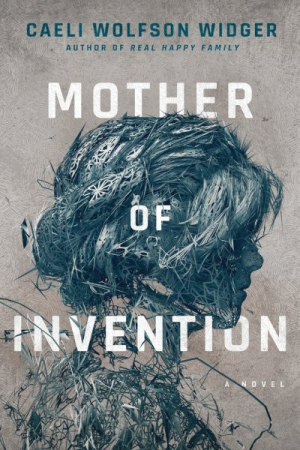Mother of Invention
On its surface, Mother of Invention is a quasi-feminist speculative novel about reinventing the way that women give birth. In her forties and childless only partially by choice, Tessa, a biotech whiz, finds the prospect of shortening gestation periods and easing women’s ways into motherhood to be irresistible.
Below the hopeful progressions of her company’s experiment, though, dark secrets lurk. Audience misgivings will be as slow to rise as the truth is to reveal itself to the well-meaning pioneers of Caeli Wolfson Widger’s horrifying near-future venture.
Characterizations bloom outward, from the safest and scientific circles to the subjects upon whom they build their work. Tessa is constructed as tough, wealthy, and sympathetic, always straining for more freedom than her choices allow. Her corner-cutting business partner, Luke, is less concerned with birthing a feminist revolution than he is with personal glory. Unbeknownst to him, it’s notoriety he’s edging toward, not fame, all because of his fixation on a group of children born in nine weeks instead of nine months.
Are they a fluke? An evolutionary twitch? Engineered? As the shadow victims of accelerated gestation reveal themselves—most noticeably in Irene, a former Yale student now locked in limbo in a government facility, and Vivian, who cannot stop talking about her unique origins—major ethical questions arise, coloring the text in time with its most thriller-like revelations, including the fascistic operations of a “Washington outsider” American president and his jaded operative, once lulled into service by “the promise of surveillance.”
The text isn’t perfect. A few details are garbled or awkward, scenes are set with a bit too much sparkling sunlight, the ending is anticlimactic, and questions may emerge—Would a woman like Tessa really approve a project name like TEAT? Will fidget spinners still be a thing in 2021?—but the story’s broader developments will still hold readers rapt. Mother of Invention cleaves together the nightmare and dream scenarios of technological advancement.
Reviewed by
Michelle Anne Schingler
Disclosure: This article is not an endorsement, but a review. The publisher of this book provided free copies of the book to have their book reviewed by a professional reviewer. No fee was paid by the publisher for this review. Foreword Reviews only recommends books that we love. Foreword Magazine, Inc. is disclosing this in accordance with the Federal Trade Commission’s 16 CFR, Part 255.

